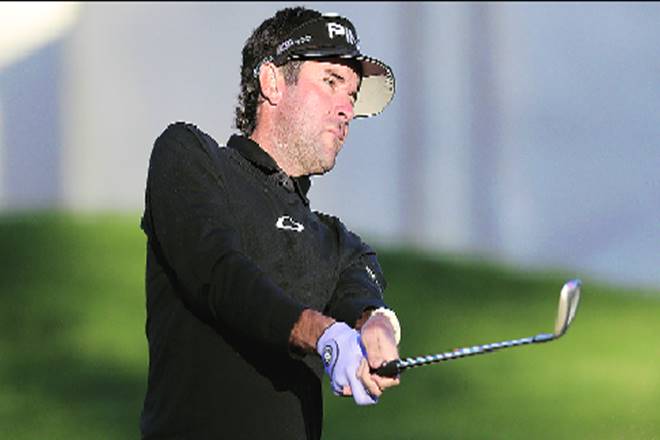Professional golfers and elite amateurs live in a different world from us hapless amateurs. In fact, they play a different game—one that most of us will never be able to experience. That in itself is not something I’m particularly sad about: to get to even a single-digit handicap level of proficiency in golf requires an unwavering commitment that most of us cannot put in. Happily, that does not isolate us from experiencing the same level of elation from the game as the pros: as a matter of fact, many would argue that casual amateur golfers are much happier souls when it comes to deriving pleasure from the game. If you work as hard as the pros do, then you’re likely to be much more unforgiving of your misses, and end up taking good shots for granted. Sour grapes? Perhaps. When golf changes from a weekend passion to one that brings home the bacon then it changes in character: for the pros, the game is a job, and for that to work, they need to get the job done, which is score well consistently, week after week. Ergo, most of the pretty flowing swings that you might still see in top amateurs disappear when they turn pro—replaced by more machine-like robust actions that are more repeatable and capable of execution under duress. That categorisation, especially in the modern age, applies to most pros. If you’re wondering what all this is leading up to, then I’m just making a case for the exception. The notable one—Bubba Watson—and why he is so important to the game of golf.
Reams have been written about Watson’s penchant for curving the ball; hitting imaginative shots; and more pointedly, his utter disdain for golf swing instruction. Search the Internet for any tip by Watson and he’ll emphasise on how his thought process is entirely ‘out there’. He has no idea what his arms or body are doing in the golf swing. He doesn’t even look at his stance—focusing entirely on where he wants the ball to end up and the flight it should take to get there. Watson trusts his innate ability to hit the shot and relies on his body to do that once he’s locked in the mental image of the shot he wants to hit. The one single thing amateurs can learn from Watson is to play golf on the golf course—not golf swing. I don’t have to elaborate on what ensues if you decide to start tampering with your golf swing when you’re out on the course. No longer target-oriented, the round devolves into a hit-and-trial affair with the focus entirely on how to hit the golf ball, as opposed to hitting the ball to a target. It’s easier said than done though, and needs a crucial element—confidence. If you second-guess your ability to hit the ball, then your body listens and reacts with the same lack of purpose.
And that’s precisely what happened to Watson in 2015.
That year, ranked fourth in the world, Watson blitzed the Riviera course at the PGA Tour’s Genesis Open for his ninth victory on that Tour. It was a stunning performance that underlined Watson’s rise that was cemented in previous years by his twin victories at The Masters Tournament. That’s when the slide began: precipitated by an undisclosed medical condition that led to severe weight loss, the 6-foot-3 39-year-old lost his game. In 2017, he missed the cut eight times, and finished in the Top-10 just twice—his ranking dove to 117th in the world. An obviously distraught Watson, who wears it on his sleeve, started speaking about retirement. One can only conjecture what changed when he teed it up at the Riviera again this month, but it’s a fair conjecture that a course and tournament that he’s won twice in the past, helped Watson to conjure up precisely the sort of memories and shots hit in the past, that he needed to remind himself of. Going into the final round with a one-shot lead, Watson’s crucial moments came on the back of his short game, not his much-vaunted length off the tee. He hit a delicate chip from short of the 12th green to eight feet and made the par putt. He then scrambled for par on the 13th hole after an errant tee shot. The big moment came on the 15th hole when he blasted out of the greenside bunker and holed the shot for a birdie. No mistakes on the closing stretch and Watson was cradling his third Genesis Open Trophy for his 10th victory on the PGA Tour.
“My goal has always been to get 10 wins. So many emotions going through my head right now,” Watson said, choking back tears. “You never know if you’re going to play good again. You never know if you’re going to lift the trophy.” In the past Watson has joked about hanging up his boots if he won 10 times on Tour—for his and the sake of golf fans around the world, that should be furthest from his mind. We all need someone like him up there, breaking the rules, and playing in his unorthodox fashion, even for the false reassurance that there are many ways to play this game.
A golfer, Meraj Shah also writes about the game

